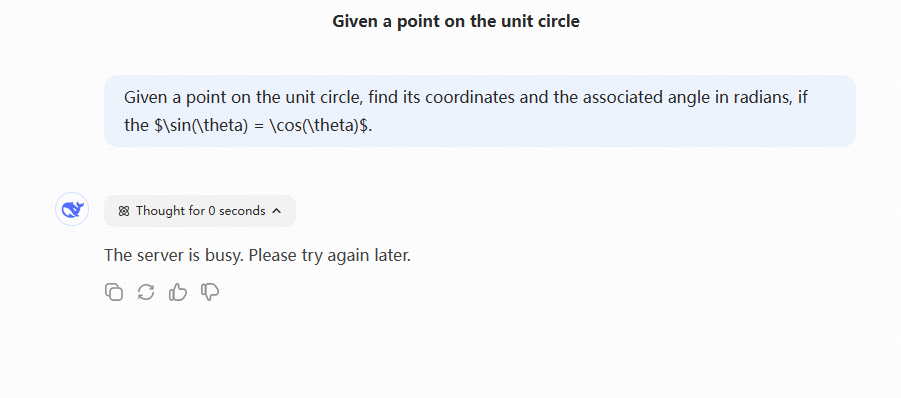Deepseek, the popular AI platform, has become an indispensable tool for many. However, its rapid growth has led to a common problem: the dreaded “Deepseek Too Busy” message. If you’re struggling with Deepseek server congestion, don’t despair! This article provides 8 server troubleshooting tips to help you get back to your AI workflow and reclaim your productivity. Keywords: Deepseek Too Busy, Server Troubleshooting Tips
The Problem: Why is Deepseek So Busy?
The “Deepseek Too Busy” error typically arises from a surge in user demand, potentially exceeding the platform’s current server capacity. Other factors like network issues or temporary technical glitches can also contribute to the problem. Regardless of the cause, the result is the same: frustration and disrupted workflows.
8 Troubleshooting Tips to Restore Your AI Workflow
Tip 1: Try Again Later (The Quick Fix… Sometimes)
The simplest solution is often to just wait a few minutes and try again. While this can sometimes resolve the issue, it’s far from a reliable fix, especially during peak usage times. Consider this a temporary band-aid, not a long-term solution.
Tip 2: Explore Alternatives: PopAi – Free Access for a Limited Time
When Deepseek is consistently busy, exploring alternative AI platforms can be a game-changer. PopAi offers similar functionalities and is currently offering a free trial for new users. Log in now for 30 free uses per day! This is a great way to maintain your productivity while Deepseek is experiencing issues.

Tip 3: Local Setup: Host Your Own AI (Advanced Users)
For users with technical expertise and available hardware, setting up a local AI environment is a powerful option. This involves installing and configuring AI models on your own computer or server. Be aware that this approach requires significant hardware resources (powerful GPU, ample RAM) and a strong understanding of command-line interfaces and AI frameworks.
Tip 4: Optimize Your Prompts
Crafting efficient and concise prompts can reduce the processing load on Deepseek’s servers. Experiment with different phrasing and avoid overly complex or ambiguous requests.
Tip 5: Use Off-Peak Hours
Just like commuting, Deepseek experiences peak and off-peak hours. Try using the platform during less busy times, such as early mornings or late evenings, to minimize the chance of encountering server congestion.
Tip 6: Check Deepseek’s Status Page
Deepseek likely has a status page or social media channel where they announce service disruptions and updates. Monitoring these channels can provide valuable information about ongoing issues and estimated resolution times.
Tip 7: Reduce Concurrent Requests
If you’re running multiple tasks simultaneously on Deepseek, try reducing the number of concurrent requests. Processing tasks one at a time can alleviate server load and improve response times.
Tip 8: Clear Your Cache and Cookies
Sometimes, outdated browser data can interfere with Deepseek’s connection. Clearing your browser’s cache and cookies can resolve these issues and improve overall performance.
Conclusion
Experiencing the “Deepseek Too Busy” message can be frustrating, but by implementing these 8 server troubleshooting tips, you can significantly improve your chances of regaining AI productivity. Remember to try these solutions, share your experiences, and explore alternative options like PopAi to ensure a smooth and efficient AI workflow. Keywords: Deepseek Too Busy, Server Troubleshooting Tips
